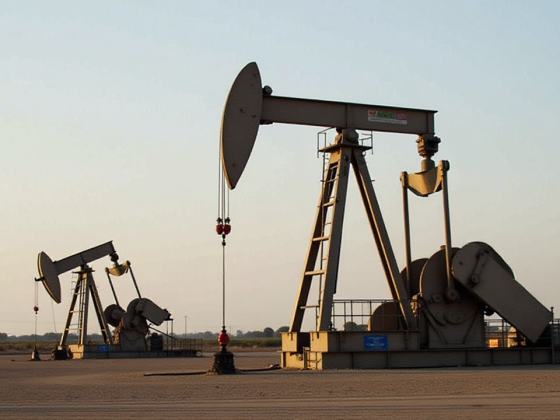Over the past year, more than $1 billion in Venezuelan oil shipments to China has been relabeled as Brazilian crude by traders, according to tanker tracking firms, company documents, and traders quoted by Reuters.
This practice allows buyers to lower logistics expenses and avoid US sanctions.
Chinese independent refiners primarily purchase seaborne oil from US-sanctioned nations, with offshore Malaysia acting as a major trans-shipment point for Venezuelan and Iranian crude.
Traders have increasingly relabeled Venezuelan oil shipments to China as Brazilian crude since July 2024.
Trans-shipping
This practice, which follows a prior method of trans-shipping Venezuelan and Iranian oil through offshore Malaysia, allows tankers to travel directly from Venezuela to China.
By eliminating the Malaysian stop-over, the voyage is shortened by approximately four days. This re-branding initiative is a response to US sanctions on Venezuelan energy exports.
The US imposed these sanctions in 2019 to diminish the oil export revenue that supports the Venezuelan government of President Nicolas Maduro.
Maduro has maintained power for over a decade through elections deemed fraudulent by observers. The sanctions are intended to pressure Maduro’s regime by restricting its primary source of income.
However, Maduro and his government have strongly condemned these sanctions.
They characterise them as illegitimate actions amounting to an “economic war” designed to destabilize Venezuela.
Despite the sanctions, practices like relabeling oil shipments indicate efforts to continue oil trade and circumvent the intended impact of the US measures.
Circumventing sanctions
To circumvent sanctions, oil traders have been transferring Venezuelan crude between ships at sea to conceal its origin before shipping it to China, the largest global crude importer.
More recently, shippers have also been manipulating tankers’ location signals, a practice known as spoofing.
This makes it appear as though vessels are departing from Brazilian ports when they are actually sailing from Venezuela.
This manipulation has been confirmed by maritime data, satellite imagery, and shoreside photos collected and analysed by TankerTrackers.com.
Bitumen mask
Between July 2024 and March 2025, China imported approximately 2.7 million metric tons (67,000 barrels per day) of mixed bitumen from Brazil, according to Chinese customs data. The total value of these imports reached $1.2 billion.
Petrobras indicates that while Chinese refiners are regular buyers of Brazilian crude oil, Brazil typically does not export bitumen blend.
Brazilian customs records confirm this, showing no bitumen blend exports to China since at least 2023.
Mixed bitumen, a tar-like residue destined for asphalt production, is distinct from Brazil’s primary crude oil exports. These exports are typically medium-sweet oil sourced from the extensive pre-salt offshore fields.
Petrobras CEO Magda Chambriard was quoted in the report by Reuters:
What we export to China is mainly crude oil from the pre-salt, it’s not bitumen.
Trading sources, tanker tracker Vortexa Analytics, and internal PDVSA documents indicated that many crude cargoes entering China labeled as Brazilian bitumen are, in fact, Venezuela’s Merey.
This flagship heavy crude is typically purchased by China’s independent refiners from Venezuela’s state-run PDVSA through intermediaries.
Chinese traders report that Merey crude is often referred to as a bitumen blend by traders. This is because its tar-like consistency allows refiners to import it without requiring government crude oil import quotas.
Cost effective
According to a trader involved in Venezuelan oil, labeling cargoes as Brazilian not only reduces travel time and ship-to-ship transfer expenses but also facilitates securing bank financing. This practice is common among regular dealers.
The trader was quoted in the report:
The savings on the freight front are not much, but it helps securing financing, relieving traders’ financing pressure throughout the two-month-long voyages.
China consistently voices its opposition to unilateral sanctions, a stance shared by Venezuela.
Notably, China serves as the primary recipient of Venezuela’s crude oil exports.
In the past year, Venezuela’s oil and heavy fuel shipments to China averaged around 351,000 barrels per day (bpd).
This volume saw an increase in the initial four months of 2025, reaching 463,000 bpd, as indicated by PDVSA records and shipping information gathered by Reuters.
Despite traders’ claims, less than 10% of China’s Venezuelan oil imports are officially reported as such. The majority continues to be declared as Malaysian crude or mixed bitumen.
The post How China is rebranding Venezuelan oil as Brazilian to evade sanctions appeared first on Invezz


